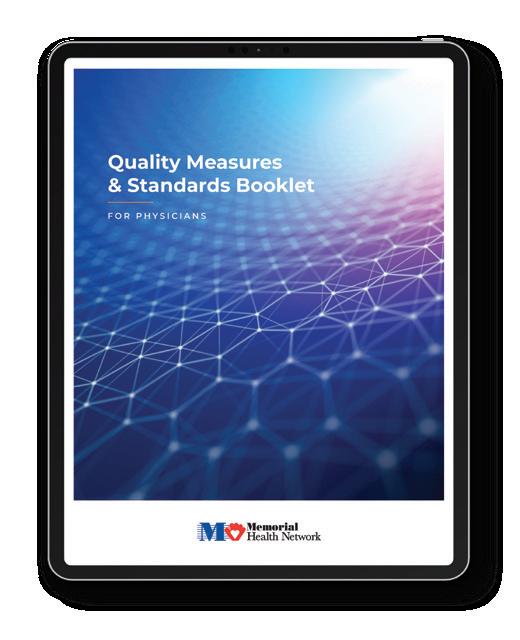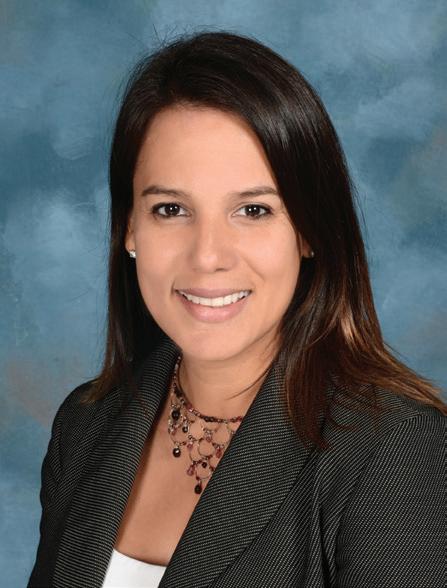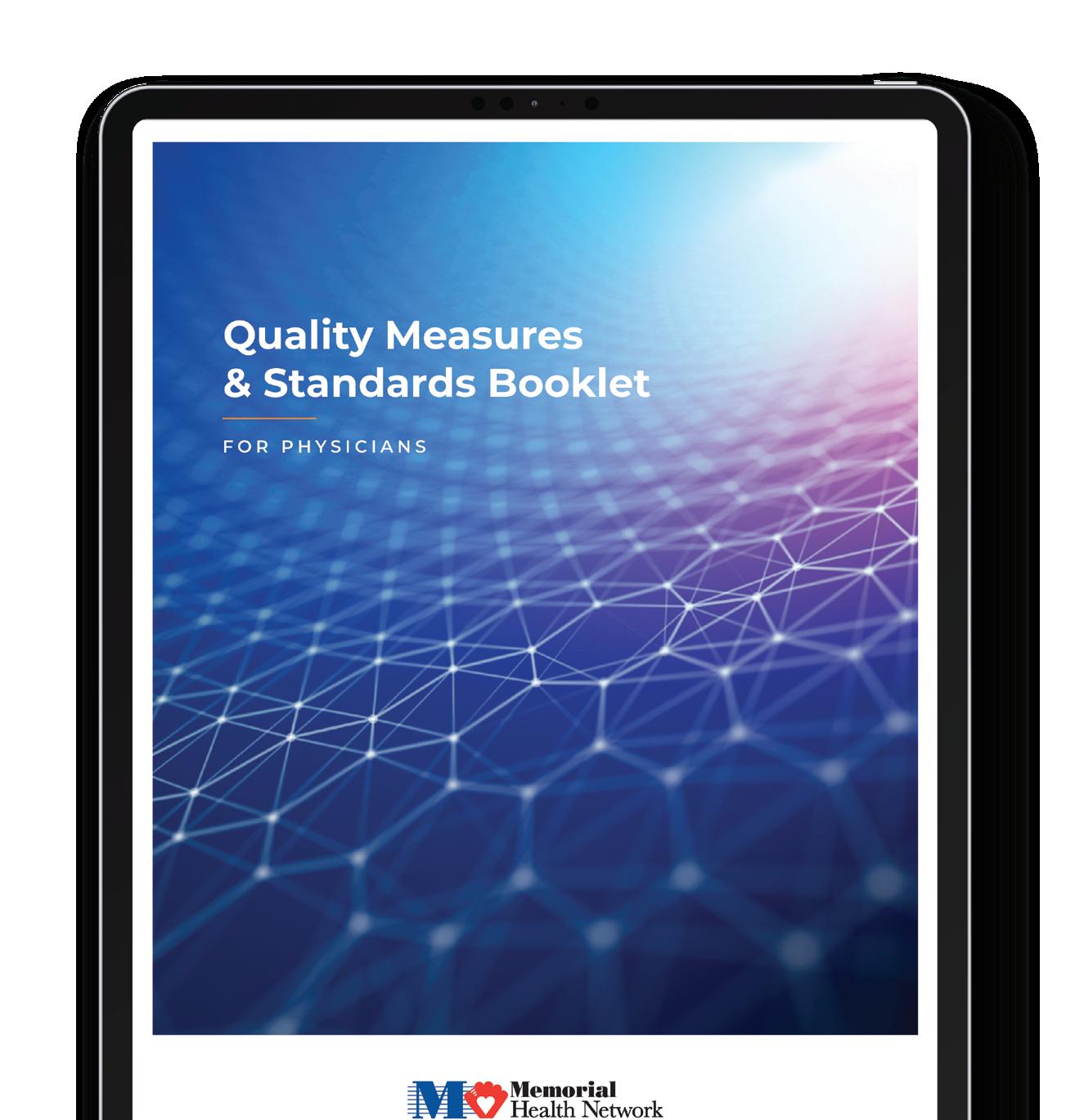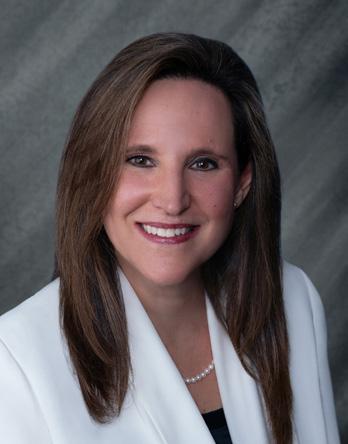Clinical Integration N EWS
The Rise and Role of Community Pharmacies

Advance Care Planning Is for All Patients
Strategies for Successful Documentation
Download your booklet inside!


The Rise and Role of Community Pharmacies

Advance Care Planning Is for All Patients
Strategies for Successful Documentation
Download your booklet inside!

At Atlantic Coast Health Network, our focus is on improving efficiencies to enhance healthcare delivery and lower costs in the process. Accuracy keeps patients safe and ensures continuity of care. From choosing the right pharmacist to having the right conversation with a patient at the right time, a simple action can influence the outcome.
In this issue we discuss the benefits of utilizing an independent community pharmacy, most notably medication reconciliation. We also explain the importance of documenting directives through Advance Care Planning, detailing best practices for providers.
This summer, we are also pleased to announce the official launch of an invaluable physician resource. The Quality Measures & Standards Booklet is a succinct guide to support our physician partners with successful documentation.
Thank you for your trust and your dedication to our patients. Together, we continue shaping the future of healthcare.
With gratitude,
 Luisa Hurtado Executive Director Atlantic Coast Health Network
Luisa Hurtado Executive Director Atlantic Coast Health Network


Atlantic Coast Health Network is always seeking new solutions to help close gaps in care. When care is coordinated between settings and providers, patients are more likely to receive the right care, at the right time. In this regard, where you choose to fill your prescriptions can be more consequential than you think.
Many retail pharmacies come with the added convenience of proximity, quick service—and a clinician on site. Getting treated at the same place where you fill your prescriptions has never been easier. However, this trend can lead to a missed opportunity for primary care physicians and for value-based care. Primary care physicians have built a relationship with their patients over time. They can offer insights based on a more complete picture of health.
Similarly, independent community pharmacies build trust and rapport with the providers in their network. The value they can provide to the patient reflects a collaborative effort between pharmacist and provider. For example, Epic enables medication information to be integrated across settings. An in-network community pharmacist will be able to instantly confirm that a patient’s active medication list is accurate and compare against newly prescribed meds. This allows for a safer transition of care.
Patient Safety – A community pharmacist will perform medication reconciliation, reducing the risk of incorrect dosing.
Efficiency – Duplicate prescriptions and discrepancies are immediately flagged or resolved directly with care team.
Cost-Savings – Patients can save on out-ofpocket expenses.
Social Determinants of Health – Having access to the complete patient picture allows the pharmacist to identify any medication access barriers.
As a provider, you can create more value for you and your patients by integrating this service into your practice. We encourage you to consider this option and discuss with your patients.
Partner with an independent community pharmacy today!
Contact our team for a complete list of independent pharmacies near you.
When patients can no longer speak for themselves, it’s so important to have all directives in writing. Advance Care Planning (ACP) allows clinicians to engage patients in the decisionmaking process well in advance to avoid any unnecessary stress or confusion in the future.
With ACP, patients can carefully consider and record their preferences regarding important clinical decisions including life support and other interventions. They can also choose to entrust a healthcare surrogate with making medical decisions on their behalf.
• Incorporate the conversation into the annual physical.
• Invite family members and healthcare surrogates to the conversation, if appropriate.
• Discuss interventions and address concerns.
• Explain the risk of not having Advance Care Planning documented.
• Have patient select an agent for medical decision-making.
• Document all directives on Epic.
Atlantic Coast Health Network encourages providers to make this a standard practice for all patients, at any time, and in any clinical setting. ACP allows the care team to act swiftly when the time comes and make informed decisions, relieving the burden on the family and allowing a patient’s voice to be heard.



ACHN is committed to supporting our physician partners in achieving value-based care success, much of which relies on high quality coding and documentation. As a physician, you should be tracking your metrics, key performance indicators, and patient surveys. However, by implementing a few best practices, you can effectively engage your entire medical office team to help you close care gaps and meet HEDIS report goals.
HEDIS measures are incorporated in most pay-forperformance programs from almost all insurers, so improving HEDIS scores may positively impact payout for these programs. Aside from the cost-savings benefits, closing care gaps more efficiently also holds providers—and patients—accountable. Precise coding leads to better healthcare delivery overall.
Below are a few strategies for successful coding and documentation.
• Enlist support. Communicate your HEDIS goals and educate your staff on HCC coding.
• Assess your practice. Identify the specific elements needed to provide and document quality care for your patients.
• Code with accuracy. Be thorough when documenting encounters, using proper codes for each service.
• Reduce requests. Consider including CPT II codes to reduce medical record requests.
A New Digital Resource Memorial Health Network has recently created a valuable reference for successful documentation. The Quality Measures & Standards Booklet for Physicians is available now as a digital resource.

What’s Inside:
• An overview of each measure
• Documentation requirements
• Eligible codes
• Inclusions and exclusions
• Common errors
• Tips to improve your score
• Assessment tools including screening forms
• Detailed summaries of Hierarchical Conditions Categories (HCCs)
• HCC coding quick reference
Physicians
William Pena, MD (Chair)
Alexander Llanos, MD
Richard Perryman, MD
Physicians
Charles Russo, MD (Chair)
Je-Anne Beaufort, MD
Kenneth Budowsky, MD
Jason Ceavers, MD
Brett Cohen, MD
Michelle Dzung, MD
Michelle Fiorillo, DO
Jennifer Goldman, DO
Administrators
Mark Doyle
Jim Moffett
Matt Muhart
Monica Puga
Non-Voting Members
Luisa Hurtado (Ex-officio)
Charles Russo, MD
Administrators
Mike Paseltiner
Jeff Sturman
Non-Voting Members
Luisa Hurtado (Ex-officio)
Richard Ashenoff
Maria Castano
Monica Puga
Physicians
Fausto De La Cruz, MD
Ben Freedman, MD
Lav K. Goyal, MD
Alex Llanos, MD
Nigel Spier, MD
Administrators
Matt Muhart (Interim Chair)
Ron Brandenburg
Jeff Bross
Bill Pepe
Non-Voting Members
Luisa Hurtado (Ex-officio)
Richard Ashenoff

With heartfelt gratitude, we mark the end of Nina Beauchesne’s 34 years of service to Memorial Healthcare System and to our Board.
Ms. Beauchesne joined Memorial in 1989, as an Administrative Resident, when the System was one hospital, and served as the second employee hired to open Memorial Hospital West. She then became the first CEO of Joe DiMaggio Children’s Hospital in 1995 where she presided over the facility’s design, construction and opening. In 2013, Ms. Beauchesne was appointed Memorial’s Executive Vice President. She led the formation of Memorial Health Network and has served on the Board of Atlantic Coast Health Network for the last 7 years.
Please join us in thanking Ms. Beauchesne for bringing wisdom, passion, and dedication to each of her roles at Memorial. While this chapter may have come to an end, she will continue to guide and support us on special projects.
ACHN is excited to announce the appointment of Monica Puga to our Board of Directors.

Ms. Puga first joined Memorial in 2001 as a nurse in Interventional Radiology. Since then, she steadily advanced within the system and has held 8 leadership roles while developing and coordinating initiatives to improve clinical integration across the organization and the community. In her current role as Senior Vice President and Chief Nurse Executive, Ms. Puga is committed to workforce development and focused on driving the transformation of care through digital innovation and care redesign.
A native of South Texas, Ms. Puga brings new perspectives on care reformation to the Board. We are grateful for her counsel and her vision as we shape the future of healthcare.
the latter role, her responsibilities included leading Memorial’s Care Coordination Center, which will launch 2023 as a command center facilitating patient flow throughout the system. Ms. Puga will continue in that as Chief Nurse Executive, focusing on driving the transformation of care through digital innovation and care redesign
